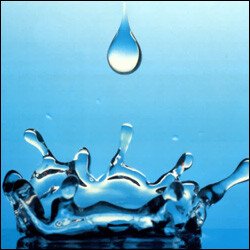
St. Kitts – Nevis Water Conservation
Basseterre, St. Kitts – Nevis
March 18, 2010 (SKNIS)
The availability of water, its quality and pollution prevention will be among issues discussed at the UNESCO World Water Day Seminar which takes place on Monday.
Monday, March 22 is being commemorated internationally as World Water Day and various countries will be undertaking activities to raise awareness about sustaining healthy ecosystems and human well-being by addressing the increasing water quality challenges in water management. They will also attempt to raise the profile of water value by encouraging all sectors of society to pay attention to water quality including pollution prevention, clean up and restoration.
The Small Islands Voice Committee, an organ of the St. Kitts and Nevis UNESCO National Commission therefore saw it fit to undertake the seminar with assistance from its various partners. The seminar is being held under the theme “˜Clean Water for a Healthy World,’ on World Water Day at the Ocean Terrace Inn at 9:00 a.m. Presenters at the opening ceremony include: Minister of Public Utilities, Honourable Earl Asim Martin, Minister of Education, Honourable Nigel Carty, and Secretary General of the UNESCO National Commission, Antonio Maynard.
During the course of the day, presentations will be delivered by representatives from the Public Utilities Department, Clarence Fitzroy Bryant College administration and Royal Utilities.
The seminar is quite timely considering that the St. Kitts and Nevis along with other countries in the region are presently experiencing drought conditions and residents are being urged to reduce water usage. The launch of the public relations campaign of the GEF-IWCAM Basseterre Valley Aquifer project has also brought to the fore, the need to protect local groundwater sources.
United Nations statistics have also revealed that “more than 2.5 billion people globally live without adequate sanitation’ and “every day, 2 million tons of sewage and other effluents drain into the world’s water.” The release noted that “the problem is worse in developing countries where over 90% of raw sewage and 70% of untreated industrial wastes are dumped into surface waters.”